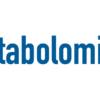Description
A Personalized Approach to Healthy Aging
The Methylation Panel is an innovative test designed to offer insight into the critical biochemical methylation pathway. Methylation metabolites are measured in plasma, and genetic single nucleotide polymorphisms (SNPs) are analyzed via buccal swab. The results are synthesized on a front-page Interpretation-at-a-Glance (IAAG) graphic for quick methylation status assessment. Within the report, results are shown in a methylation pathway graphic to provide a clear understanding of the biochemistry involved.
What is Methylation?
Methylation is a chemical process that happens billions of times per second in every cell of the body.1 Methyl groups are transferred and donated between many different molecules which change their structure and function. Methyl groups act like billions of switches which turn genes on or off, help regulate mood, detoxify hormones, produce energy, and promote healthy aging.
Vitamins, minerals, and amino acids from the diet are needed to keep this process running smoothly. There are also genetic factors and oxidative stressors which can affect how well this pathway works.2
Why is Methylation important?
Methylation is needed to create DNA and RNA and regulate gene expression. It helps make creatine, which is needed for skeletal muscle contraction. Methylation is involved in basic energy production, fat metabolism, immune responses, vascular health, and cell membrane repair. It produces and metabolizes neurotransmitters to regulate mood. Methylation also works to neutralize toxins and hormones.
Methylation defects have been associated with many clinical conditions including, but not limited to cancer, autism, ADHD, congenital and neural tube defects, cognitive decline, depression, cardiovascular disease, and schizophrenia.3-11
Which patients can benefit from the Methylation Panel?
Because of its all-encompassing role in basic human physiology, the range of symptoms associated with methylation defects is broad. The Methylation Panel can offer insight in patients with:
- questionable detoxification (patients who take hormone therapy, drink alcohol, or have toxin exposure)12-14
- cancer risk7,15-17
- cardiovascular disease (non-coronary atherosclerosis, hypertension, coronary artery disease)10,18-20
- psychiatric and mood disorders (schizophrenia, bipolar disorder, anxiety, depression)5,7,21,22
- neurologic disorders (Parkinson’s disease, cognitive decline)9,23-25
- chronic fatigue26
GENOVA’S METHODOLOGY
Analytes are measured utilizing Liquid Chromatography with tandem Mass Spectrometry (LC-MS/MS) except for glutathione which is a colorimetric assay developed for an automated chemistry platform. The genetic SNPs are assessed via pyrosequencing.
What advantage does the Methylation Panel offer compared to other diagnostics?
Genova’s Methylation Panel combines biomarkers with genetic information in one profile. Some genetic predispositions are not always expressed, therefore seeing combined results offers greater insight.
Not only does the Methylation Panel assess the methylation cycle, but it also incorporates the folate cycle and transsulfuration. Because these three processes are interconnected, the Methylation Panel is able to provide a complete picture regarding methylation status.
How are the results of the Methylation Panel helpful?
The Methylation Panel can uncover needs for nutritional support such as amino acids, vitamins, and minerals. Knowing this can help guide dietary and nutraceutical treatment plans. Additionally, knowing genetic predispositions can help focus supplementation to override potential methylation defects.




